“There is little importance to men’s lives except the accomplishments that they leave to posterity… When all is said and done, accomplishment is all that counts.” Herbert Hoover
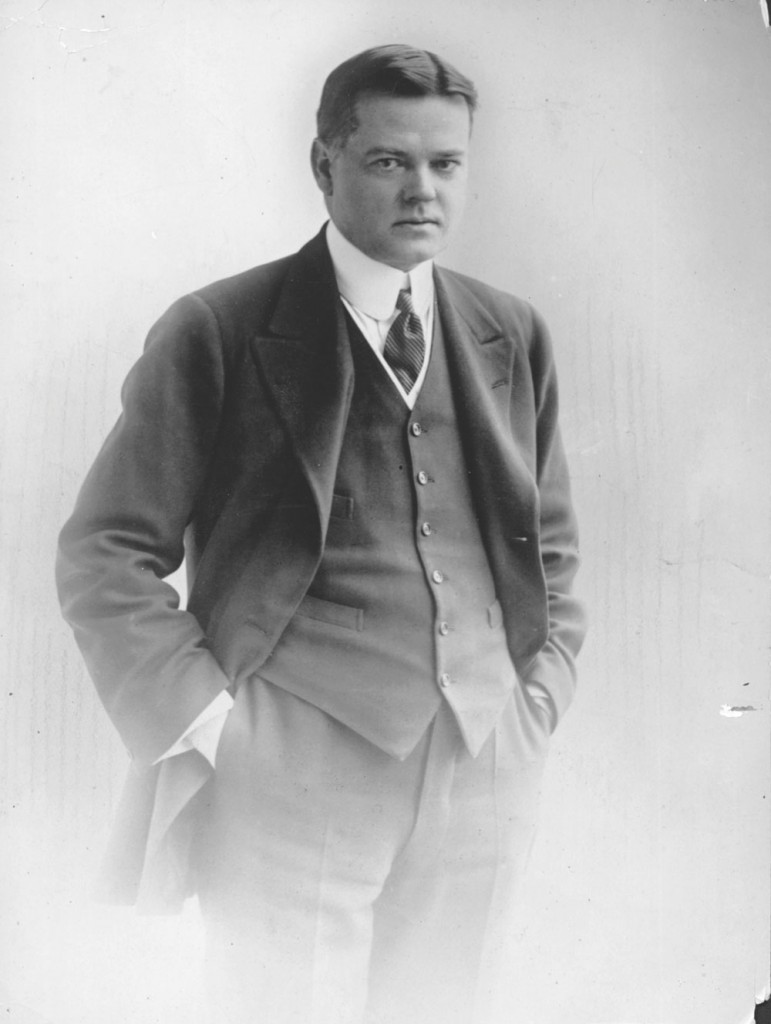 Fifty years ago today, Herbert Hoover passed away in his suite at the Waldorf Astoria Hotel in New York. A highly successful mining engineer, world-renowned humanitarian, 31st President of the United States, prolific author and public figure, his legacy is one of the most accomplished lives in modern history.
Fifty years ago today, Herbert Hoover passed away in his suite at the Waldorf Astoria Hotel in New York. A highly successful mining engineer, world-renowned humanitarian, 31st President of the United States, prolific author and public figure, his legacy is one of the most accomplished lives in modern history.
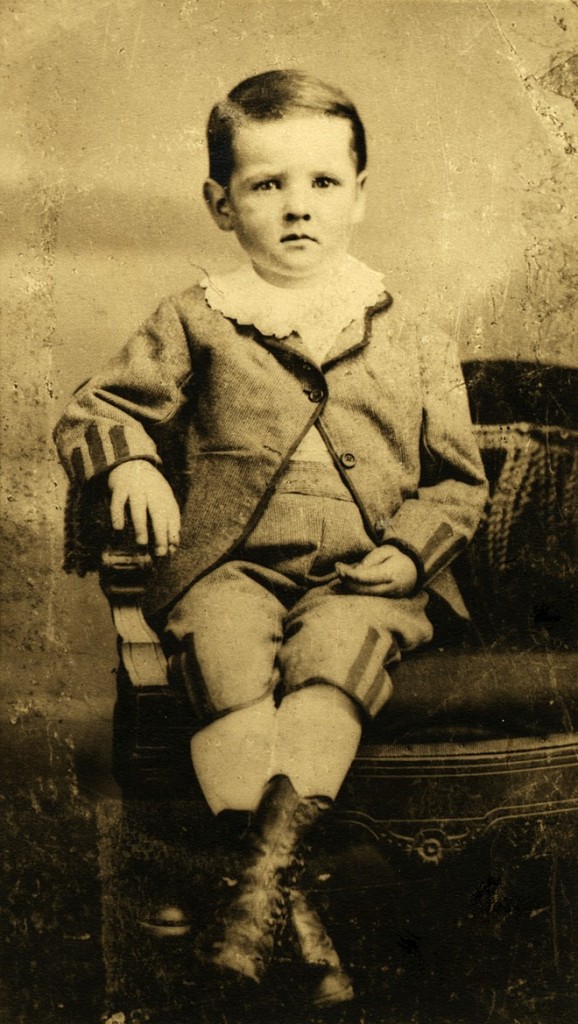 One may find hard to believe the humble origins of such a man. Hoover was born on August 10, 1874 in West Branch, Iowa to working-class parents in a Quaker community. Tragically, Hoover’s parents both died before he turned ten, leaving him orphaned and eventually sent off to the care of his maternal uncle in Newberg, Oregon.
A chance encounter with a professor at the then-forming Stanford University led Hoover to apply there and to be accepted to the “Pioneer Class” in 1891, though he had to take a remedial course in mathematics. Hoover can also be considered the very first student at Stanford, by virtue of being the first to be assigned a dorm room on campus.
One may find hard to believe the humble origins of such a man. Hoover was born on August 10, 1874 in West Branch, Iowa to working-class parents in a Quaker community. Tragically, Hoover’s parents both died before he turned ten, leaving him orphaned and eventually sent off to the care of his maternal uncle in Newberg, Oregon.
A chance encounter with a professor at the then-forming Stanford University led Hoover to apply there and to be accepted to the “Pioneer Class” in 1891, though he had to take a remedial course in mathematics. Hoover can also be considered the very first student at Stanford, by virtue of being the first to be assigned a dorm room on campus.
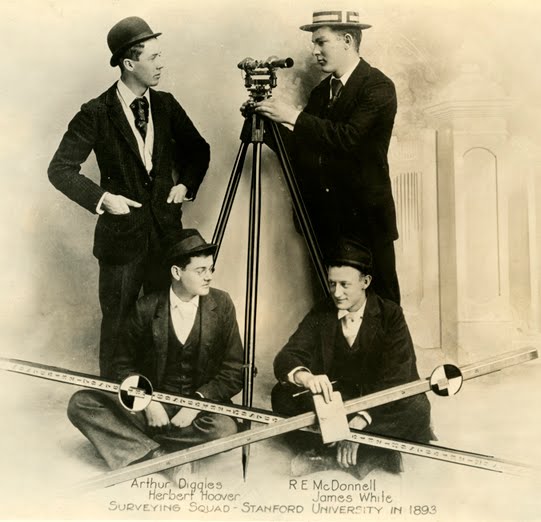 While at Stanford, in addition to studying geology, Hoover was student body treasurer, manager of the football and baseball teams and even encountered the famed pianist and future prime minister of Polad, Ignacy Jan Paderewski. Hoover had organized a concert featuring Paderewski during the Poles tour of the United States, but the absence of students around campus during the summer led to poor ticket sales to the concert, held in nearby San Jose. A distraught Hoover was profusely apologetic to Paderewski, who graciously accepted what little had been collected.
Little did both men know that their paths would cross again on the international stage when Poland regained her independence in 1919 and Hoover (as U.S. Food Administrator under Woodrow Wilson) would spearhead the revitalization of the fledgling nation through the American Relief Administration (A.R.A.).
While at Stanford, in addition to studying geology, Hoover was student body treasurer, manager of the football and baseball teams and even encountered the famed pianist and future prime minister of Polad, Ignacy Jan Paderewski. Hoover had organized a concert featuring Paderewski during the Poles tour of the United States, but the absence of students around campus during the summer led to poor ticket sales to the concert, held in nearby San Jose. A distraught Hoover was profusely apologetic to Paderewski, who graciously accepted what little had been collected.
Little did both men know that their paths would cross again on the international stage when Poland regained her independence in 1919 and Hoover (as U.S. Food Administrator under Woodrow Wilson) would spearhead the revitalization of the fledgling nation through the American Relief Administration (A.R.A.).
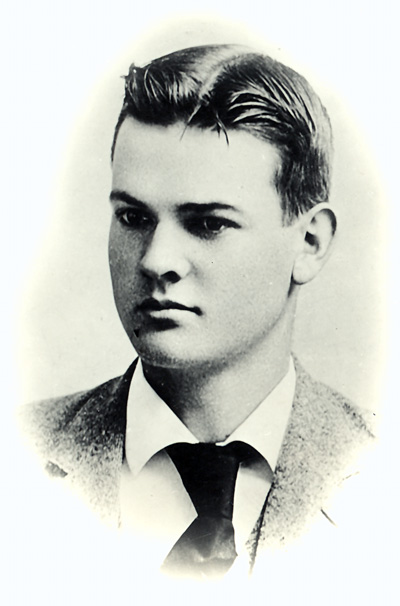 After graduating from Stanford (where he also met his future wife and fellow geologist, Lou Henry Hoover), he worked in Australia and East Asia as a mining engineer. His business interests and growing reputation as an excellent manager saw him travel thousands of miles in an age before air travel became prevalent. He witnessed firsthand the anti-foreigner, Boxer Rebellion while living in Tientsin, China. He travelled across Europe as well and came to reside near London, a hub of global business and finance.
When World War I broke out he used his talents to organize safe passage for Americans fleeing the continent. His abilities and humanitarian instincts led him to take charge of the Commission for Relief in Belgium (C.R.B.), a privately funded relief organization aimed at alleviating the suffering of the tiny European nation that had been brutalized by the German invasion in August, 1914. For the duration of the war, millions of Belgians were saved from starvation by the organizational efforts of Hoover, and the tireless work of thousands of American and Belgian volunteers who negotiated the difficult, wartime conditions to create perhaps the most unique and influential, humanitarian relief effort in history.
The work initiated by Hoover and the C.R.B. would have effects beyond Belgium as the A.R.A. (also led by Hoover), would fight famine and provide relief on an even larger scale throughout Eastern Europe and Russia from 1919 until 1923.
After graduating from Stanford (where he also met his future wife and fellow geologist, Lou Henry Hoover), he worked in Australia and East Asia as a mining engineer. His business interests and growing reputation as an excellent manager saw him travel thousands of miles in an age before air travel became prevalent. He witnessed firsthand the anti-foreigner, Boxer Rebellion while living in Tientsin, China. He travelled across Europe as well and came to reside near London, a hub of global business and finance.
When World War I broke out he used his talents to organize safe passage for Americans fleeing the continent. His abilities and humanitarian instincts led him to take charge of the Commission for Relief in Belgium (C.R.B.), a privately funded relief organization aimed at alleviating the suffering of the tiny European nation that had been brutalized by the German invasion in August, 1914. For the duration of the war, millions of Belgians were saved from starvation by the organizational efforts of Hoover, and the tireless work of thousands of American and Belgian volunteers who negotiated the difficult, wartime conditions to create perhaps the most unique and influential, humanitarian relief effort in history.
The work initiated by Hoover and the C.R.B. would have effects beyond Belgium as the A.R.A. (also led by Hoover), would fight famine and provide relief on an even larger scale throughout Eastern Europe and Russia from 1919 until 1923.
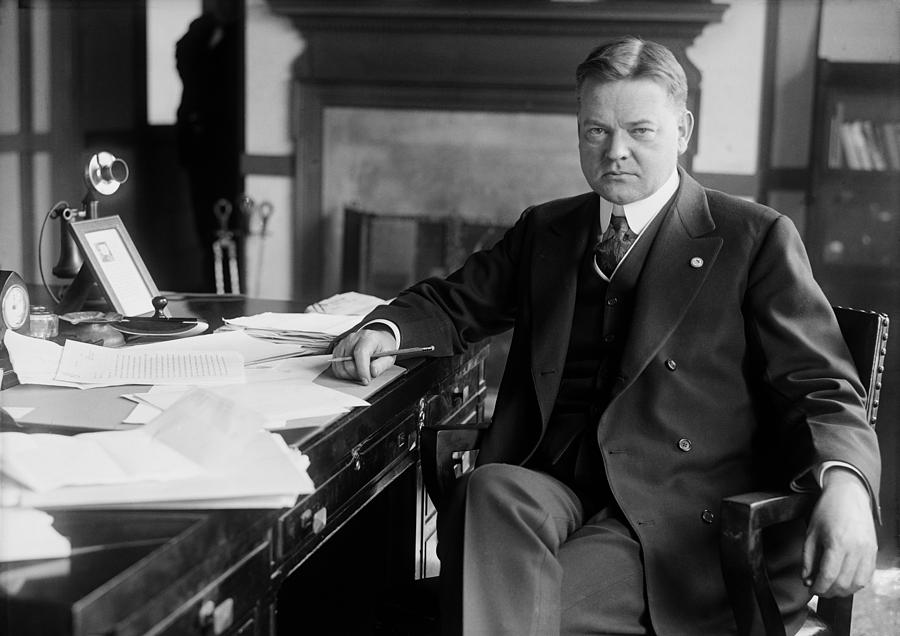 Hoover’s name was as well recognized in Europe as that of Woodrow Wilson, and the reputation he gained led to his appointment as U.S. Secretary of Commerce, first under President Harding then President Coolidge. Hoover’s experience in Europe would prove particularly useful in responding to the Great Mississippi Flood of 1927. The reputation he had gained over the preceding 14 years would vault him to the ultimate position in American politics in 1928, and the first and only one that he was ever elected to, as president of the United States.
Given Hoover’s amazing record up to that point, thirty-five years after graduating from Stanford and engaging in a wildly successful career in business, then in public service, the Stock Market Crash of 1929 and the onset of the Great Depression must have been a particularly painful turn of fortune.
Contrary to popular belief, Hoover didn’t sit idly by while the nation’s economy took a turn for the worse. He initiated numerous programs aimed to revive the economy through stimulated growth of U.S. industry. It can even be argued that the New Deal economic program of his successor, Franklin D. Roosevelt, was a continuation and expansion of the measures initiated by Hoover. Unfortunately for him, the economy did not recover during his administration and he was soundly defeated by FDR in 1932.
Hoover’s name was as well recognized in Europe as that of Woodrow Wilson, and the reputation he gained led to his appointment as U.S. Secretary of Commerce, first under President Harding then President Coolidge. Hoover’s experience in Europe would prove particularly useful in responding to the Great Mississippi Flood of 1927. The reputation he had gained over the preceding 14 years would vault him to the ultimate position in American politics in 1928, and the first and only one that he was ever elected to, as president of the United States.
Given Hoover’s amazing record up to that point, thirty-five years after graduating from Stanford and engaging in a wildly successful career in business, then in public service, the Stock Market Crash of 1929 and the onset of the Great Depression must have been a particularly painful turn of fortune.
Contrary to popular belief, Hoover didn’t sit idly by while the nation’s economy took a turn for the worse. He initiated numerous programs aimed to revive the economy through stimulated growth of U.S. industry. It can even be argued that the New Deal economic program of his successor, Franklin D. Roosevelt, was a continuation and expansion of the measures initiated by Hoover. Unfortunately for him, the economy did not recover during his administration and he was soundly defeated by FDR in 1932.
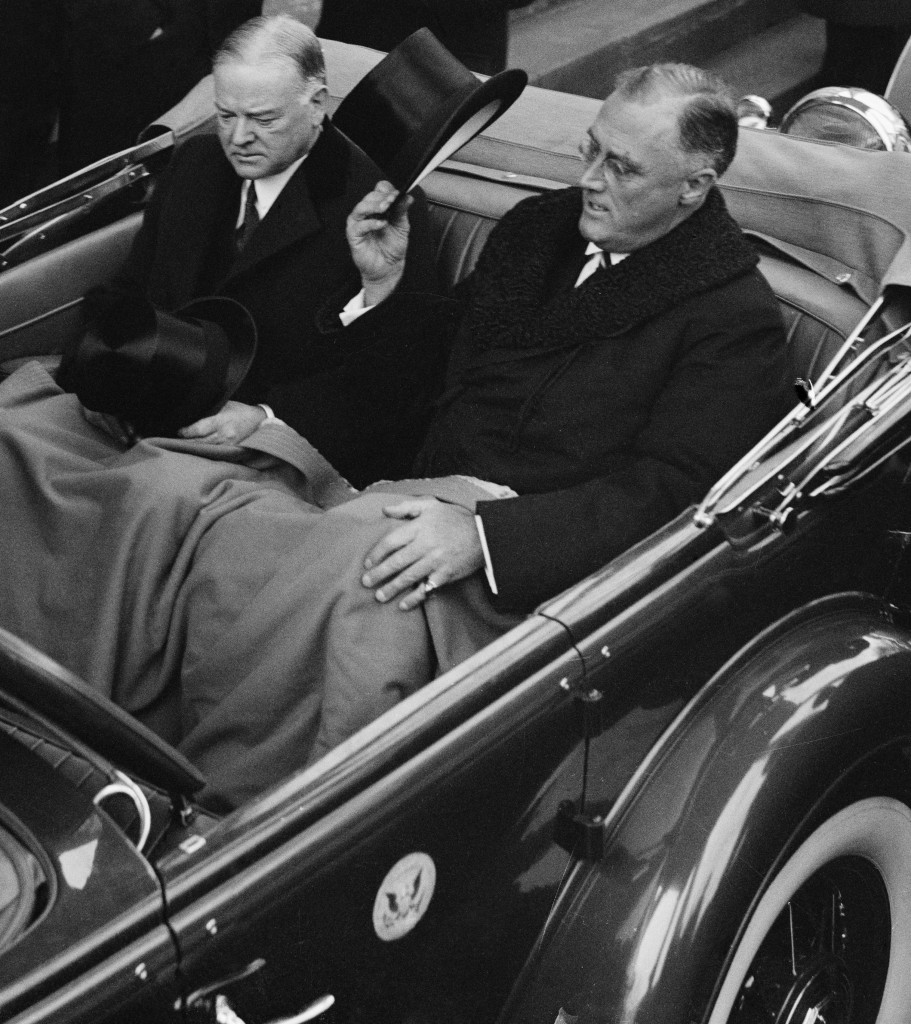 While many in Hoover’s position would be content to live out a quiet retirement, perhaps writing their memoirs, Hoover would continue his role as a major public figure for another thirty years (while also writing his multi-volume memoirs).
After some time out of the public spotlight, Hoover assumed the role as one of the chief opponents of FDR’s policies and what he saw as an increasingly overbearing federal government, akin to the fascist movements emerging in Europe. He visited Europe in 1938, even meeting Hitler and other leaders, noting the escalating tensions given rise by specter of another war in Europe. He also traveled to Europe again in 1946, part of a humanitarian mission at the request of President Truman to examine food conditions after the war.
While Herbert Hoover’s reputation was smeared by political opponents during his administration and the 1932 campaign, creating a caricature of ineptness that persists to this day, the sincere reader, regardless of their political persuasion, will be rewarded for taking a second look at this extraordinary life.
Part of the reason for the one-sided portrayals of Hoover is that the man himself, out of a high sense of honor and decency refused to lower himself to the mud-slinging tactics of his opponents. He wasn’t without his flaws, but in comparison to the lifelong politicians of his day and ours, he was an exception.
While many in Hoover’s position would be content to live out a quiet retirement, perhaps writing their memoirs, Hoover would continue his role as a major public figure for another thirty years (while also writing his multi-volume memoirs).
After some time out of the public spotlight, Hoover assumed the role as one of the chief opponents of FDR’s policies and what he saw as an increasingly overbearing federal government, akin to the fascist movements emerging in Europe. He visited Europe in 1938, even meeting Hitler and other leaders, noting the escalating tensions given rise by specter of another war in Europe. He also traveled to Europe again in 1946, part of a humanitarian mission at the request of President Truman to examine food conditions after the war.
While Herbert Hoover’s reputation was smeared by political opponents during his administration and the 1932 campaign, creating a caricature of ineptness that persists to this day, the sincere reader, regardless of their political persuasion, will be rewarded for taking a second look at this extraordinary life.
Part of the reason for the one-sided portrayals of Hoover is that the man himself, out of a high sense of honor and decency refused to lower himself to the mud-slinging tactics of his opponents. He wasn’t without his flaws, but in comparison to the lifelong politicians of his day and ours, he was an exception.
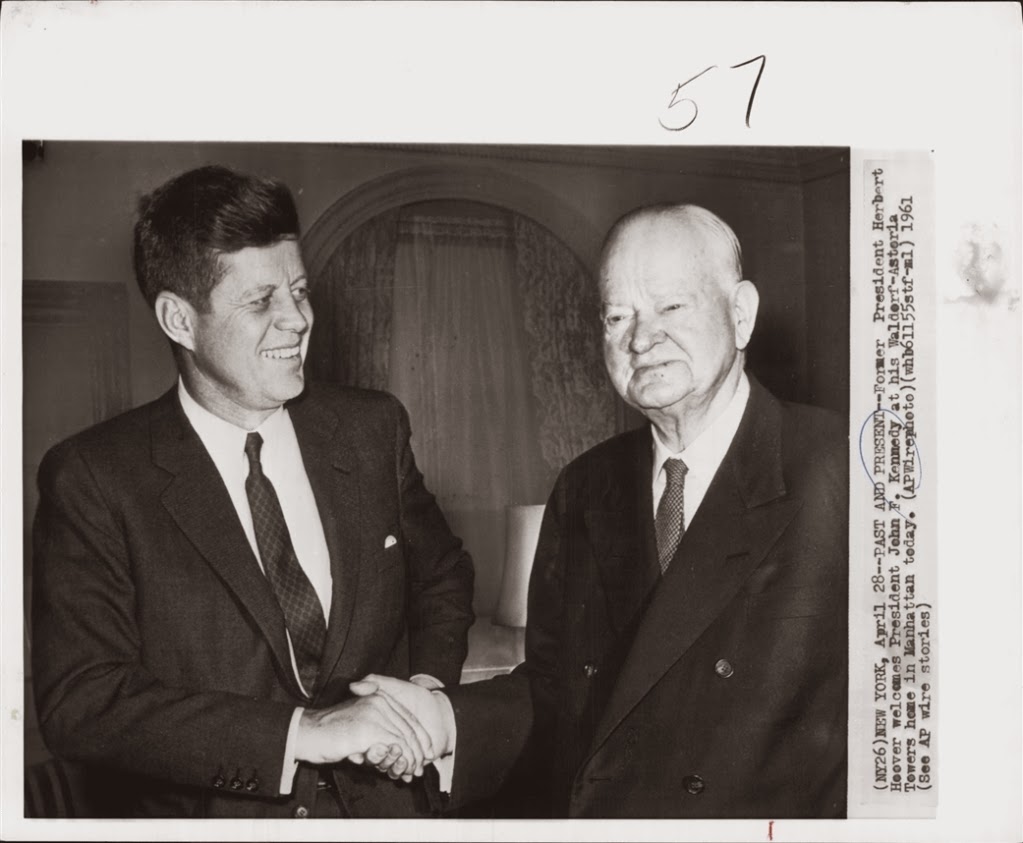 Through my thirteen years of working at the Hoover Institution at Stanford University (another tremendous part of Hoover’s legacy) I’ve learned a great deal about Hoover, though I was born nearly twenty years after he passed on. I’ll never know him as those who he was closest to, and friends who affectionately called him “The Chief”, nor those who’ve spent their careers studying his history and the world in which he lived, but to some small degree I feel that I’ve come to understand him.
As complex as the problems that he faced were, his singular focus to make the most of his circumstances and leave the largest number of accomplishments to posterity is what made him great. He fought the good fight and finished the work that he started. He’s a man that, to this day, can’t be taken lightly.
Through my thirteen years of working at the Hoover Institution at Stanford University (another tremendous part of Hoover’s legacy) I’ve learned a great deal about Hoover, though I was born nearly twenty years after he passed on. I’ll never know him as those who he was closest to, and friends who affectionately called him “The Chief”, nor those who’ve spent their careers studying his history and the world in which he lived, but to some small degree I feel that I’ve come to understand him.
As complex as the problems that he faced were, his singular focus to make the most of his circumstances and leave the largest number of accomplishments to posterity is what made him great. He fought the good fight and finished the work that he started. He’s a man that, to this day, can’t be taken lightly.
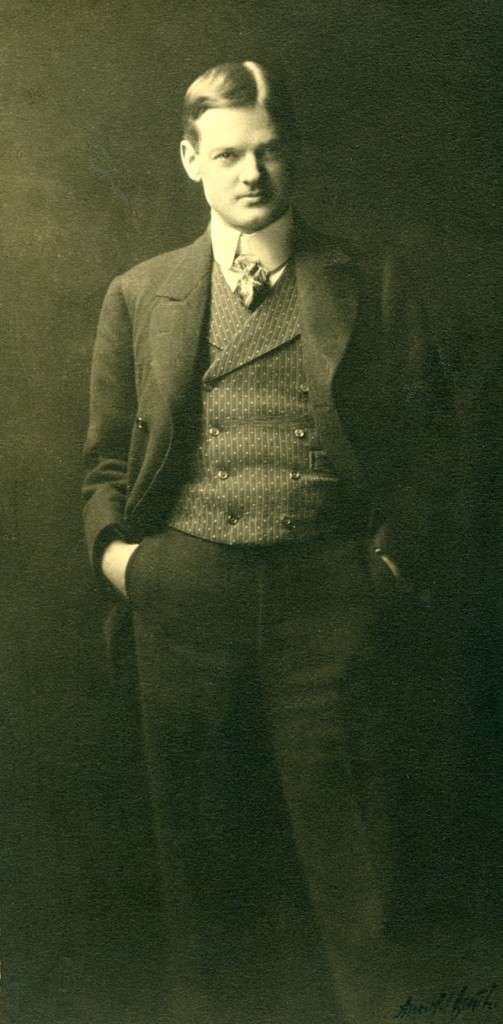 Further Reading:
Herbert Hoover ‘Napoleon of Mercy’: A century ago, a pioneering effort in global philanthropy whose legacy lives on. by George Nash (Wall Street Journal, October 17, 2014)
He Knew He Was Right: Herbert Hoover devoted his post-presidential life to vigorously defending his record. by Amity Schlaes (Wall Street Journal, March 29, 2013)
Further Reading:
Herbert Hoover ‘Napoleon of Mercy’: A century ago, a pioneering effort in global philanthropy whose legacy lives on. by George Nash (Wall Street Journal, October 17, 2014)
He Knew He Was Right: Herbert Hoover devoted his post-presidential life to vigorously defending his record. by Amity Schlaes (Wall Street Journal, March 29, 2013)
 Fifty years ago today, Herbert Hoover passed away in his suite at the Waldorf Astoria Hotel in New York. A highly successful mining engineer, world-renowned humanitarian, 31st President of the United States, prolific author and public figure, his legacy is one of the most accomplished lives in modern history.
Fifty years ago today, Herbert Hoover passed away in his suite at the Waldorf Astoria Hotel in New York. A highly successful mining engineer, world-renowned humanitarian, 31st President of the United States, prolific author and public figure, his legacy is one of the most accomplished lives in modern history.
 One may find hard to believe the humble origins of such a man. Hoover was born on August 10, 1874 in West Branch, Iowa to working-class parents in a Quaker community. Tragically, Hoover’s parents both died before he turned ten, leaving him orphaned and eventually sent off to the care of his maternal uncle in Newberg, Oregon.
A chance encounter with a professor at the then-forming Stanford University led Hoover to apply there and to be accepted to the “Pioneer Class” in 1891, though he had to take a remedial course in mathematics. Hoover can also be considered the very first student at Stanford, by virtue of being the first to be assigned a dorm room on campus.
One may find hard to believe the humble origins of such a man. Hoover was born on August 10, 1874 in West Branch, Iowa to working-class parents in a Quaker community. Tragically, Hoover’s parents both died before he turned ten, leaving him orphaned and eventually sent off to the care of his maternal uncle in Newberg, Oregon.
A chance encounter with a professor at the then-forming Stanford University led Hoover to apply there and to be accepted to the “Pioneer Class” in 1891, though he had to take a remedial course in mathematics. Hoover can also be considered the very first student at Stanford, by virtue of being the first to be assigned a dorm room on campus.
 While at Stanford, in addition to studying geology, Hoover was student body treasurer, manager of the football and baseball teams and even encountered the famed pianist and future prime minister of Polad, Ignacy Jan Paderewski. Hoover had organized a concert featuring Paderewski during the Poles tour of the United States, but the absence of students around campus during the summer led to poor ticket sales to the concert, held in nearby San Jose. A distraught Hoover was profusely apologetic to Paderewski, who graciously accepted what little had been collected.
Little did both men know that their paths would cross again on the international stage when Poland regained her independence in 1919 and Hoover (as U.S. Food Administrator under Woodrow Wilson) would spearhead the revitalization of the fledgling nation through the American Relief Administration (A.R.A.).
While at Stanford, in addition to studying geology, Hoover was student body treasurer, manager of the football and baseball teams and even encountered the famed pianist and future prime minister of Polad, Ignacy Jan Paderewski. Hoover had organized a concert featuring Paderewski during the Poles tour of the United States, but the absence of students around campus during the summer led to poor ticket sales to the concert, held in nearby San Jose. A distraught Hoover was profusely apologetic to Paderewski, who graciously accepted what little had been collected.
Little did both men know that their paths would cross again on the international stage when Poland regained her independence in 1919 and Hoover (as U.S. Food Administrator under Woodrow Wilson) would spearhead the revitalization of the fledgling nation through the American Relief Administration (A.R.A.).
 After graduating from Stanford (where he also met his future wife and fellow geologist, Lou Henry Hoover), he worked in Australia and East Asia as a mining engineer. His business interests and growing reputation as an excellent manager saw him travel thousands of miles in an age before air travel became prevalent. He witnessed firsthand the anti-foreigner, Boxer Rebellion while living in Tientsin, China. He travelled across Europe as well and came to reside near London, a hub of global business and finance.
When World War I broke out he used his talents to organize safe passage for Americans fleeing the continent. His abilities and humanitarian instincts led him to take charge of the Commission for Relief in Belgium (C.R.B.), a privately funded relief organization aimed at alleviating the suffering of the tiny European nation that had been brutalized by the German invasion in August, 1914. For the duration of the war, millions of Belgians were saved from starvation by the organizational efforts of Hoover, and the tireless work of thousands of American and Belgian volunteers who negotiated the difficult, wartime conditions to create perhaps the most unique and influential, humanitarian relief effort in history.
The work initiated by Hoover and the C.R.B. would have effects beyond Belgium as the A.R.A. (also led by Hoover), would fight famine and provide relief on an even larger scale throughout Eastern Europe and Russia from 1919 until 1923.
After graduating from Stanford (where he also met his future wife and fellow geologist, Lou Henry Hoover), he worked in Australia and East Asia as a mining engineer. His business interests and growing reputation as an excellent manager saw him travel thousands of miles in an age before air travel became prevalent. He witnessed firsthand the anti-foreigner, Boxer Rebellion while living in Tientsin, China. He travelled across Europe as well and came to reside near London, a hub of global business and finance.
When World War I broke out he used his talents to organize safe passage for Americans fleeing the continent. His abilities and humanitarian instincts led him to take charge of the Commission for Relief in Belgium (C.R.B.), a privately funded relief organization aimed at alleviating the suffering of the tiny European nation that had been brutalized by the German invasion in August, 1914. For the duration of the war, millions of Belgians were saved from starvation by the organizational efforts of Hoover, and the tireless work of thousands of American and Belgian volunteers who negotiated the difficult, wartime conditions to create perhaps the most unique and influential, humanitarian relief effort in history.
The work initiated by Hoover and the C.R.B. would have effects beyond Belgium as the A.R.A. (also led by Hoover), would fight famine and provide relief on an even larger scale throughout Eastern Europe and Russia from 1919 until 1923.
 Hoover’s name was as well recognized in Europe as that of Woodrow Wilson, and the reputation he gained led to his appointment as U.S. Secretary of Commerce, first under President Harding then President Coolidge. Hoover’s experience in Europe would prove particularly useful in responding to the Great Mississippi Flood of 1927. The reputation he had gained over the preceding 14 years would vault him to the ultimate position in American politics in 1928, and the first and only one that he was ever elected to, as president of the United States.
Given Hoover’s amazing record up to that point, thirty-five years after graduating from Stanford and engaging in a wildly successful career in business, then in public service, the Stock Market Crash of 1929 and the onset of the Great Depression must have been a particularly painful turn of fortune.
Contrary to popular belief, Hoover didn’t sit idly by while the nation’s economy took a turn for the worse. He initiated numerous programs aimed to revive the economy through stimulated growth of U.S. industry. It can even be argued that the New Deal economic program of his successor, Franklin D. Roosevelt, was a continuation and expansion of the measures initiated by Hoover. Unfortunately for him, the economy did not recover during his administration and he was soundly defeated by FDR in 1932.
Hoover’s name was as well recognized in Europe as that of Woodrow Wilson, and the reputation he gained led to his appointment as U.S. Secretary of Commerce, first under President Harding then President Coolidge. Hoover’s experience in Europe would prove particularly useful in responding to the Great Mississippi Flood of 1927. The reputation he had gained over the preceding 14 years would vault him to the ultimate position in American politics in 1928, and the first and only one that he was ever elected to, as president of the United States.
Given Hoover’s amazing record up to that point, thirty-five years after graduating from Stanford and engaging in a wildly successful career in business, then in public service, the Stock Market Crash of 1929 and the onset of the Great Depression must have been a particularly painful turn of fortune.
Contrary to popular belief, Hoover didn’t sit idly by while the nation’s economy took a turn for the worse. He initiated numerous programs aimed to revive the economy through stimulated growth of U.S. industry. It can even be argued that the New Deal economic program of his successor, Franklin D. Roosevelt, was a continuation and expansion of the measures initiated by Hoover. Unfortunately for him, the economy did not recover during his administration and he was soundly defeated by FDR in 1932.
 While many in Hoover’s position would be content to live out a quiet retirement, perhaps writing their memoirs, Hoover would continue his role as a major public figure for another thirty years (while also writing his multi-volume memoirs).
After some time out of the public spotlight, Hoover assumed the role as one of the chief opponents of FDR’s policies and what he saw as an increasingly overbearing federal government, akin to the fascist movements emerging in Europe. He visited Europe in 1938, even meeting Hitler and other leaders, noting the escalating tensions given rise by specter of another war in Europe. He also traveled to Europe again in 1946, part of a humanitarian mission at the request of President Truman to examine food conditions after the war.
While Herbert Hoover’s reputation was smeared by political opponents during his administration and the 1932 campaign, creating a caricature of ineptness that persists to this day, the sincere reader, regardless of their political persuasion, will be rewarded for taking a second look at this extraordinary life.
Part of the reason for the one-sided portrayals of Hoover is that the man himself, out of a high sense of honor and decency refused to lower himself to the mud-slinging tactics of his opponents. He wasn’t without his flaws, but in comparison to the lifelong politicians of his day and ours, he was an exception.
While many in Hoover’s position would be content to live out a quiet retirement, perhaps writing their memoirs, Hoover would continue his role as a major public figure for another thirty years (while also writing his multi-volume memoirs).
After some time out of the public spotlight, Hoover assumed the role as one of the chief opponents of FDR’s policies and what he saw as an increasingly overbearing federal government, akin to the fascist movements emerging in Europe. He visited Europe in 1938, even meeting Hitler and other leaders, noting the escalating tensions given rise by specter of another war in Europe. He also traveled to Europe again in 1946, part of a humanitarian mission at the request of President Truman to examine food conditions after the war.
While Herbert Hoover’s reputation was smeared by political opponents during his administration and the 1932 campaign, creating a caricature of ineptness that persists to this day, the sincere reader, regardless of their political persuasion, will be rewarded for taking a second look at this extraordinary life.
Part of the reason for the one-sided portrayals of Hoover is that the man himself, out of a high sense of honor and decency refused to lower himself to the mud-slinging tactics of his opponents. He wasn’t without his flaws, but in comparison to the lifelong politicians of his day and ours, he was an exception.
 Through my thirteen years of working at the Hoover Institution at Stanford University (another tremendous part of Hoover’s legacy) I’ve learned a great deal about Hoover, though I was born nearly twenty years after he passed on. I’ll never know him as those who he was closest to, and friends who affectionately called him “The Chief”, nor those who’ve spent their careers studying his history and the world in which he lived, but to some small degree I feel that I’ve come to understand him.
As complex as the problems that he faced were, his singular focus to make the most of his circumstances and leave the largest number of accomplishments to posterity is what made him great. He fought the good fight and finished the work that he started. He’s a man that, to this day, can’t be taken lightly.
Through my thirteen years of working at the Hoover Institution at Stanford University (another tremendous part of Hoover’s legacy) I’ve learned a great deal about Hoover, though I was born nearly twenty years after he passed on. I’ll never know him as those who he was closest to, and friends who affectionately called him “The Chief”, nor those who’ve spent their careers studying his history and the world in which he lived, but to some small degree I feel that I’ve come to understand him.
As complex as the problems that he faced were, his singular focus to make the most of his circumstances and leave the largest number of accomplishments to posterity is what made him great. He fought the good fight and finished the work that he started. He’s a man that, to this day, can’t be taken lightly.
 Further Reading:
Herbert Hoover ‘Napoleon of Mercy’: A century ago, a pioneering effort in global philanthropy whose legacy lives on. by George Nash (Wall Street Journal, October 17, 2014)
He Knew He Was Right: Herbert Hoover devoted his post-presidential life to vigorously defending his record. by Amity Schlaes (Wall Street Journal, March 29, 2013)
Further Reading:
Herbert Hoover ‘Napoleon of Mercy’: A century ago, a pioneering effort in global philanthropy whose legacy lives on. by George Nash (Wall Street Journal, October 17, 2014)
He Knew He Was Right: Herbert Hoover devoted his post-presidential life to vigorously defending his record. by Amity Schlaes (Wall Street Journal, March 29, 2013)